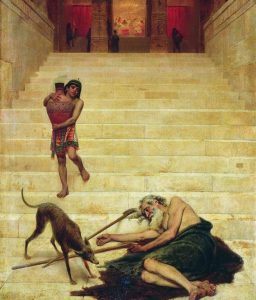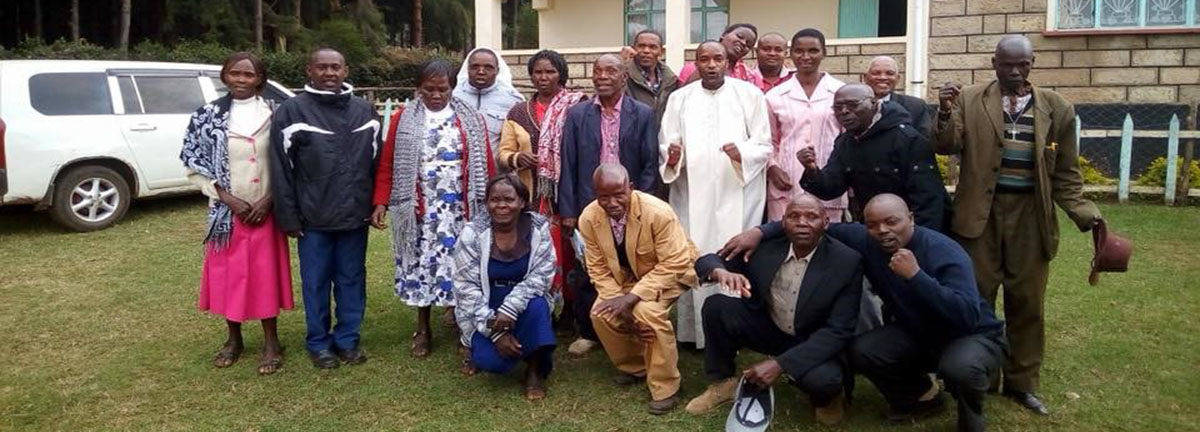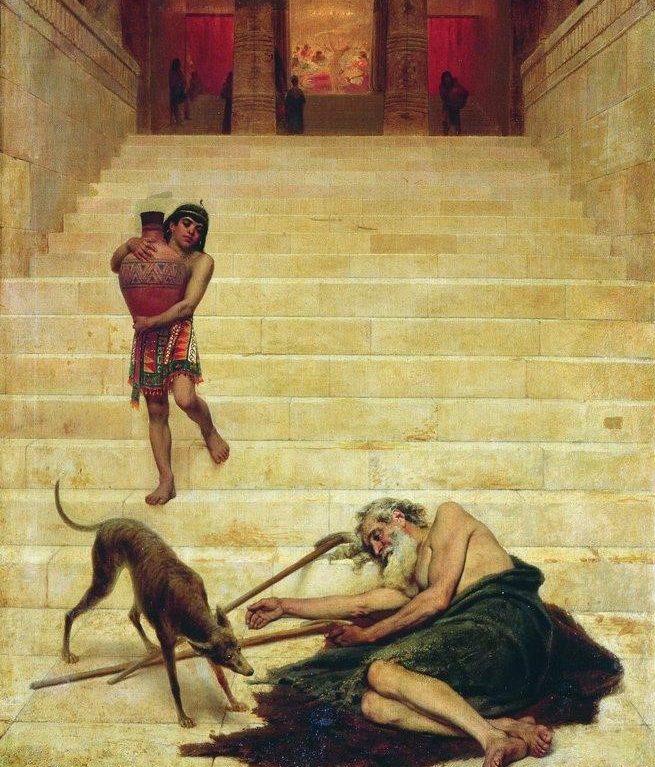
The readings for this week remind us that we are called to share our God given gifts and possessions with those who have less than we do.
Prophet Amos is speaking to those who are living the life of indulgence in his time: they who are lying on ivory beds, drink wine, enjoy harps sounds, dine on the lambs of the flock and use expensive and finest oil for anointing themselves but insensitive to whatever is happening around them. He tells them that God deplores their lifestyle.
The same is happening in the Gospel with the rich man who is enjoying every day his God given blessings but insensitive to the poor man lying at his gate. The poor man represents the person whom God alone cares for and unlike the rich man he has a name: “Lazarus” which precisely abbreviated from “Eleazarus” means “God helps him”. By a way of contrast, we live in a world even today with the rich people living good life and the poor people continuing to be poorer; the gap is widening every day. In our communities we have those who are self-centered and insensitive, and those who are hopeless and poor.
So, this parable can be interpreted in a social perspective. Pope Paul VI in his Encyclical Populorum Progressio 40 years ago addressing on the campaign against hunger, he wrote: “It is a question of building a world where every man…can live a fully human life…where the poor man Lazarus can sit down at the same table with the rich man” (47). The voice of Paul VI is still equally pressing today. In his Encyclical Caritas in Veritate, Pope Benedict XVI wrote: “Is an ethical imperative for the universal church, as she responds to the teachings of her founder, the Lord Jesus concerning solidarity and sharing of goods, to feed the hungry” (27). St John Paul II on this parable says: “It is an invitation to form our consciences that we cannot remain idle and enjoy life while we have Lazarus next at our door” (Homily, New York, 1979). The Second Vatican Council continues to resonate its message of appeal for our poor brothers and sisters with these words: “The joys and the hopes, the griefs and the anxieties of the men of this age, especially those who are poor or in any way afflicted…these are joys and hopes of the followers of Christ” (Gaudium Et Spes, 1)
The parable can also be interpreted in an economic perspective. From the beginning of Luke 16, is the series of messages that address the ethics of worldly wealth: the immediate topical context of Jesus’ discourse is the management of wealth, the idolatry of mammon and the perilous state of the rich. we may want to think of the economic systems that do not favour the poor.
The following people were sensitive to Lazarus at their door and today they encourage us to be involved in advocacy and action to reach out to Lazarus. They are to mention but a few: St. Francis of Assisi, St. Vincent De Paul, St. Mother Teresa of Calcutta and she profoundly continues to remind us that the poor are our brothers and sisters to be welcomed and loved, not strangers to be ignored or rejected, in them we see the face of Jesus. These men and women proclaimed the Psalm of today which is the hymn to praise God who is on the side of those who are oppressed, who gives food to the hungry and sets prisoners free, who raises up those who are bowed down. We can also make this hymn a reality of what God is doing today through our concern for the poor. Let us be dedicated as St Paul exhorts Timothy to live as a man dedicated to God and therefore a witness for Jesus, speaking up for the truth. The truth is: Jesus through his death and resurrection has redeemed us and we can sit at the bosom of Abraham. He became poor for us to become rich (phil 2:7-9). Hence, the parable is not a cosmological lesson.
Christian Action This Week: Become the Word (Dabar): Preach the word as an Apostle, Live it as a Disciple.
Joy and Peace.








